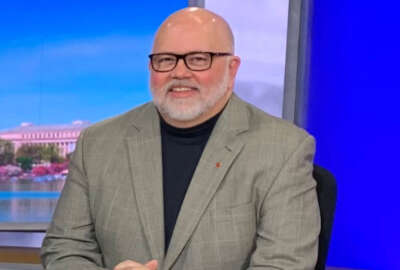
CEO Switch: Trump To Biden, now what?
Jessica Klement, staff vice president for advocacy at NARFE, says that action in NAPA's OPM report is essential if the civil service is to be repaired after four...
When it comes to personality, background, just about everything in fact, it would be harder to find two people less alike than former President Donald Trump and incumbent Joe Biden.
Trump is a sometimes successful New York City real estate tycoon and very successful TV reality star with a generally low opinion of government and, by default, the people who work for it. He said the nation’s capital was a swamp that needed to be drained and decentralized. That Interior Department workers should do their work west of the Mississippi River. He also felt federal unions got away with murder sometimes, slowing the progress of agency work while enjoying rent-free office space in federal buildings. His team was generally suspicious of teleworking and had taken steps to cut back or eliminate many work-from-home programs.
Biden, by contrast, is the ultimate government insider. He’s a proud career politician who spent most of his life working inside the beltway as a U.S. senator. He’s too liberal for conservatives and too conservative for his party’s progressive wing. He knows and understands government and believes a strong federal presence and backing it is important to making life better for more people. He’s one of few elected officials who really knows much about the federal bureaucracy and how it works. For many, their knowledge of feds as agents of change and also ordinary citizens is scant. Or limited to the postal facility, VA hospital, federal prison or IRS center in their district or state. But he clearly likes feds and what they do.
So what next?
Most fed-friendly groups — unions, associations and many customers of government — believe the civil service may get its groove back under the Biden administration. Or at least that it should return to being a happier, more secure place to work with fewer people looking over their shoulders to see if a politically-appointed boss has them or their job on their to-do-in list.
The solution, many feel, is a new March 2021 report from NAPA. That’s a beautiful town in California and an auto parts giant in others, but in the federal inner circle, its stands for the National Academy of Public Administration. It’s been around a long time, is well respected and has come up with some great ideas. The latest being its proposals to get the civil service back on track, to make government work something people seek after, respect and cherish. Many experts praised last’s months report. As they did similar reports through the years. The problem is in translating words and suggestions into action. The report titled Elevating Human Capital: Reframing the U.S. Office of Personnel Management’s Leadership Imperative isn’t going to get it on any book club reading list. Hollywood and Netflix will probably pass. As will most people.
So is the government, as Trump felt, an impediment to future growth and action, a self-serving operations overstaffed with time-serving bureaucrats with a political (mostly Democratic) agenda? Or is government the way to go — case in point the miss-mash of state rules and methods to handle the coronavirus — when central control is necessary? And is it staffed with smart, good people who talk about “service” when they discuss their jobs?
Two things: One, read the report. Or at least skim it.
Secondly, listen to today’s Your Turn program. My guest is Jessica Klement, staff vice president for advocacy at the National Active and Retired Federal Employees (NARFE) Association. She has long experience on Capitol Hill and now runs grassroots and congressional level efforts on behalf of active and retired feds. She says that action in the NAPA report is essential if the civil service is to be repaired after four years of attacks from the White House. She fears that with everything going on, the month-old report is in danger of being forgotten and left to gather dust. Like most plans to make government service better.
For millions of current and retired feds the “evil twins” that reduce or eliminate their retirement benefits are the Windfall Elimination Provision and the Government Pension Office. NARFE and other groups have been working for years to modify them without success. But things may be changing under the new administration. I’ll ask Jessica Klement about that on the show. It begins at 10 a.m. ET streaming here or on the radio in the D.C. area on 1500 AM. The show will be archived so you can catch it later. If you have questions for Klement, send them to me before showtime at mcausey@federalnewsnetwork.com.
Nearly Useless Factoid
By Alazar Moges
Jawed Karim, a YouTube cofounder, posted the first ever video uploaded to the website in April of 2005. The short video, titled “Me at the Zoo,” shows Karim standing in front of elephants at the San Diego Zoo.
Source: Business Insider
Copyright © 2025 Federal News Network. All rights reserved. This website is not intended for users located within the European Economic Area.
Mike Causey is senior correspondent for Federal News Network and writes his daily Federal Report column on federal employees’ pay, benefits and retirement.
Follow @mcauseyWFED





